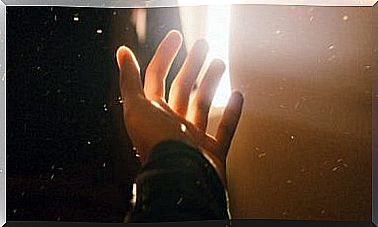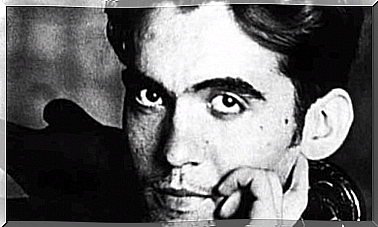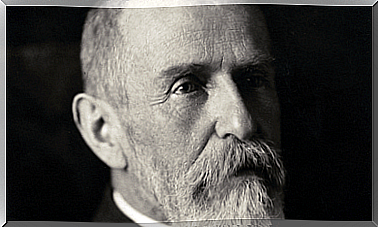Making Excuses: The Tireless Habit That Defines Many People

There are people like that, who have a doctorate in making excuses, people who thread fabulous justifications for every oversight, missed task, failure, stumble or broken word. It costs them nothing to resort to flowery pretexts that, in addition to being childish, demonstrate a clear irresponsibility towards their own lives.
The famous French writer Stendhal used to say that whoever excuses himself accuses himself. It is a great truth, since this type of behavior shows, above all, a type of self-deception with which to safeguard one’s self-esteem or deeper realities that one does not want to assume, such as indecision, insecurity, immaturity or even fear.
We have all known or are close to someone who is used to making excuses almost with every circumstance. That subtle, but striking art, to avoid any type of responsibility, exhausts and wears out. Something like this generates serious problems at the work, family and especially personal level. Having as a partner a person who makes pretexts his shield for every difficulty, problem or circumstance can undoubtedly be very harmful.
Understanding what is behind this type of personality will be of great help to us. Not only to be able to handle them a little better, but also to favor, as far as possible, adequate strategies so that they are aware of the effect of their behavior.

Making excuses: the art of lying, procrastination and the trapped brain
The habit of making excuses starts in childhood. Already in school we can find more than one boy or girl capable of giving curious excuses to justify why they have not done their homework. At home, they are also agile and witty when they are called to attention for neglecting their tasks, for avoiding responsibilities, for bearing other guilt that is their own. Nobody confronts them and little by little, they make the excuse their way of survival.
Almost without realizing it, they become artisans of lies, great procrastinators, one of those who leave for next year what they should have done yesterday. In their small universe, everything has its justification and if the rest do not understand them, they do not hesitate to resort to anger and reproach, to “you don’t trust me”, “you never believe me.”
Now, it is necessary to understand a small aspect of someone who has a doctorate in the art of making excuses: they are not happy people. They are by no means profiles that feel good about themselves. Those who resort to the pretext do so when they feel threatened, when their competence is questioned, when their error, carelessness, and erratic behavior come to light. The excuse is a defense mechanism, a spring that serves as a shield to cover up weaknesses and inconsistencies.
The excuses that “make you sick” and limit
Excuses corner the brain in the basement of fear. Thus, those who resort to them almost for every circumstance is limiting their growth, responsibility with their life and their own human potential. Because the habit of excuses is like a virus that makes a person sick by putting chains on change, on the obligation to take care of themselves in a mature way.
«I could not finish the report because my computer was infected with a Trojan», «I did not go to the job interview because the train had a breakdown and I could not get there», «I know I told you that we would go on that trip but now I have to help my parents »… Behind these and other equally false pretexts lies something more than lack of honesty. It is the fear of facing certain realities that one should deal with for their own well-being, dignity, and happiness.

Make excuses why they do it?
Making excuses is the easiest way to face any compromising situation. If we have forgotten an important appointment, it is always better to blame providence, that car breakdown, that sudden illness that has us in bed.
Let’s see, however, what dimensions specifically trace this behavior:
- Better to postpone than face (procrastination as a defense mechanism). If something demands a lot from us, if it is going to put us to the test, it is better to leave it for tomorrow. Before dealing with what makes us feel unsafe, the wisest thing to do for these people is to put it off as long as possible (and credible).
- Safety and comfort before anything else (the fear factor). The person accustomed to making excuses not only lives, but hibernates in their comfort zone. Everything beyond is secondary, as well as threatening.
How to help people to break the habit of excuses?
As we have already seen, the roots of the bad art of making excuses often sink into the heart of fear or insecurity of those who resort to the pretext to safeguard their ego or their comfortable position in the comfort zone. Sometimes, of course, an excuse is nothing more than a lie, a base strategy with which to hide certain realities.
Be that as it may, and even if we are the ones who sometimes resort to excuses for not making the changes we should, it is appropriate to take into account certain keys. Reflecting on the following points can be helpful in this type of situation.
Aspects to disable excuses
- Every time we detect that someone gives us an excuse, it is important not to miss it. The most advisable thing is to confront, to force who we have in front of us to be sincere, especially with himself.
- It must be shown in a respectful way that an excuse is a lie, but a lie that the person tells himself -> I have not gone to that interview because I have lost the subway -> I have not gone to that interview because I would not know how handle a new rejection.
- If excuses are your lifesavers, jump in and learn to swim. There are many people who resort to the most imaginative justifications for not facing what scares them and that they postpone. If someone wants to be respected and above all, feel good about himself, he must put aside excuses and simply act, face, resolve, transform …

To conclude, although it is evident that we have all made use of excuses on more than one occasion, we also know what it costs to completely discard them. Let us, therefore, have patience with those who still use them and try to make them leave them as one who loosens weight, as one who frees himself from a heavy load.









